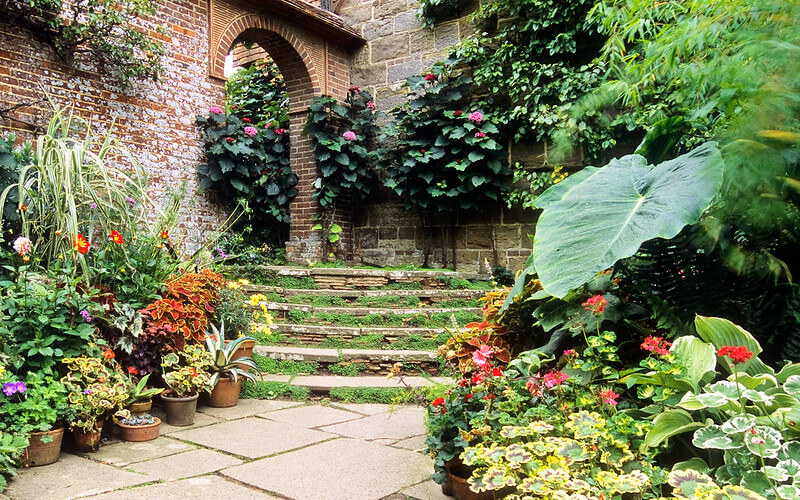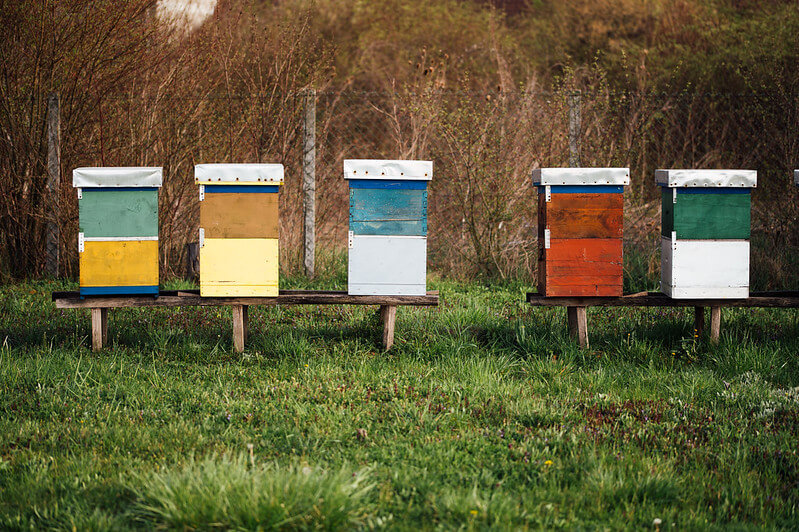Hobby farms are small-scale farms with the focus on following that farming passion to produce several benefits. This type of farming is not mainly about making money, but there is a potential for financial side hustles.

Before we jump into the exciting world of hobby farming, let’s start off by differentiating between some commonly confused terms.
Difference Between Hobby Farming, Homesteading, and Farmsteading
Is there really a difference? Yes!
Homesteading is self-reliance.
Hobby farming is lifestyle farming.
Farmsteading is farming as a homestead-based business.
Hobby Farmers
Hobby farmers are different than homesteaders because the drive to be self-reliant isn’t the primary goal. They’re generally different from farmers because they’re not trying to make a financial living. Hobby farmers typically have off-farm jobs that afford their farming habits or hobby and living expenses.
Homesteaders
Homesteaders remind me of pioneers. They have the drive to produce everything needed to thrive. Someone who runs a homestead lives on the land where they farm. Much of the land is dedicated to producing diverse animals and plants that provide for the homesteaders and one another.
For instance, a homesteader raising chickens and rabbits will try to have everything they need to sustain themselves and the animals. Homesteading flows in a full circle compared to a hobby farmer who is likely to buy feed from a local shop to feed their show birds.
Farmsteaders
A homesteader and a farmstead have quite a bit in common. They’re trying to produce the things that sustain their families with an emphasis on diversity. Hobby farmers tend to have one breed of animal or a couple of breeds of the same species. Farmsteaders run their homestead like a business.
The typical farm is operated as the primary means of financial payout with the bonus of reaping what’s been sown in the gardens and growing in the barns. Hobby farming is the opposite.
In all cases, farmers are people who are growing and/or raising things. One thing’s for sure: Hobby farmers, homesteaders, and farmsteaders are connected to the planet.
Types of Hobby Farms
I think I’ve gone on long enough. Let’s get down to the root of the matter. You know, the exciting stuff.
The list of hobby farms is much more extensive than one might assume. Permaculture, forest gardening, hydroponics, raising chickens or rabbits, Christmas tree farms, corn mazes, pumpkin patches, fish farms, and petting zoos can all be categorized as hobby farming.
So there are numerous types of hobby farms, with some having more than one focus. I’m going to mention some of my favorites.
Unconventional Gardens

While some hobby farmers focus on market gardens, others focus on one or two unconventional items that most people wouldn’t think are grown on a farm. Growing mushrooms isn’t something most people consider when they hear the word farming. Growing mushrooms is more labor and time-intensive than a traditional crop like tomatoes.
However, that doesn’t mean there isn’t a demand for mushrooms at the market, or people who enjoy growing and cultivating them.
Microgreens are grown for personal use and to make a few bucks at a farmer’s market or with direct customers. Like mushrooms, microgreens don’t require much space to grow.
The list of specialty gardens is lengthy. But I’m sure you get the gist.
Market Gardening
Market gardens are small-scale farming operations. All the work is done by hand, with little machinery. The crops are sold directly to restaurants and consumers.
Market gardens usually focus on a wide range of various products, while bigger industrial farms concentrate on a target crop. Running this type of hobby farm is an excellent way for people to live a lifestyle with more focus on living off the land without switching to a fully self-reliant farm aimed at an income.
Urban Farming

Urban farming is awesome. There’s no need for the countryside to start a small-scale hobby farm. Urban farming consists of growing, processing, and distributing food throughout urban areas and cities.
Urban farmers grow fruits and vegetables, keep bees, and raise some animals. It’s all about making the most of the available space you have. Urban farmers don’t have as many freedoms as rural farmers. They have to check with the city to find out if there are any municipal by-laws about different types of agriculture.
For instance, some cities allow residents to dedicate and convert their entire front yard into garden beds or to raise chickens. Others may have bans or restrictions that lead to violation tickets and fines. Always do your homework, friends.
Urban farmers make the most of the space they have. Start off with a veggie garden in one spot and work your way up to expanding on other areas. Potted plants are popular as they can be moved around and eliminate the need for a yard. The opportunities are endless.
Micro Dairies
Micro dairies or micro creameries are small-scale dairy farms.
Starting a successful micro-dairy requires about four cows and at least $15 thousand worth of dairy equipment. There are always ways to budget. Some folks start a micro-dairy because they love cows, appreciate dairy products, and have limited space to work. It can be a win-win as long (as you’re breaking even and enjoying yourself). Even if you only provide dairy products for your family, it’s worth it in the long run.
Beekeeping

Beekeeping provides keepers with honey, wax, and worker bees to pollinate crops. Bees on the property will dramatically increase your harvest.
Beekeeping doesn’t cost as much as something like a micro-dairy. $500 or so can get you everything you need to get started, including bee boxes, equipment, clothing, gear, and the bees.
Beekeepers can make money selling honey, wax, and potentially, bees after the colony expands. It depends on what the individual’s goals are. Bee hives don’t require a bunch of space, and every hive has the potential to produce over $200 worth of honey annually.
The beeswax can be sold as crafting materials or used to make candles.
Advantages and Disadvantages of Hobby Farming
There are pros and cons to everything. Starting a hobby farm might sound fun and affordable, but is it something worth doing, and will you enjoy it?
Advantages of Hobby Farming
Hobby Farming Is Healthy
Having a hobby is healthy, getting outdoors and playing in the dirt is healthy, animals are healthy to have around, and fresh food is healthy. Need I say more?
It’s Practical
Becoming self-sustaining in any way is practical. Hobby farming a practical and beneficial way to enjoy spending one’s time.
It’s Therapeutic
Most hobby farmers find something therapeutic about their farming lifestyle. It’s a wonderful stress reliever, and studies show being in contact with fresh air and soil is vital to our health and well-being.
Disadvantages of Hobby Farming
It’s not all sunshine and rainbows.
Hobby Farms Don’t Always Provide Money
It’s possible to make extra pocket money with a hobby farm. It’s not likely it would be enough to sustain a small family. You also don’t get tax breaks.
Hobby Farming Takes a Lot of Work
Regardless of the type of farm you want, it requires dedication, time, and investments. Hobby farms can grow quickly, and while that’s great, it can also be overwhelming. If you have an off-site job, it can be tight trying to juggle both simultaneously.
Responsibility
Whether you’re raising animals or growing food, there are responsibilities to uphold. Water the gardens, pull the weeds, harvest the produce, feed the animals, clean their housing … the list goes on. While it is most definitely fun, it requires responsibility.
I find hobby farming to be a gateway into homesteading and farmsteading. It’s got appeal, benefits, pleasure, and some financial benefits.

